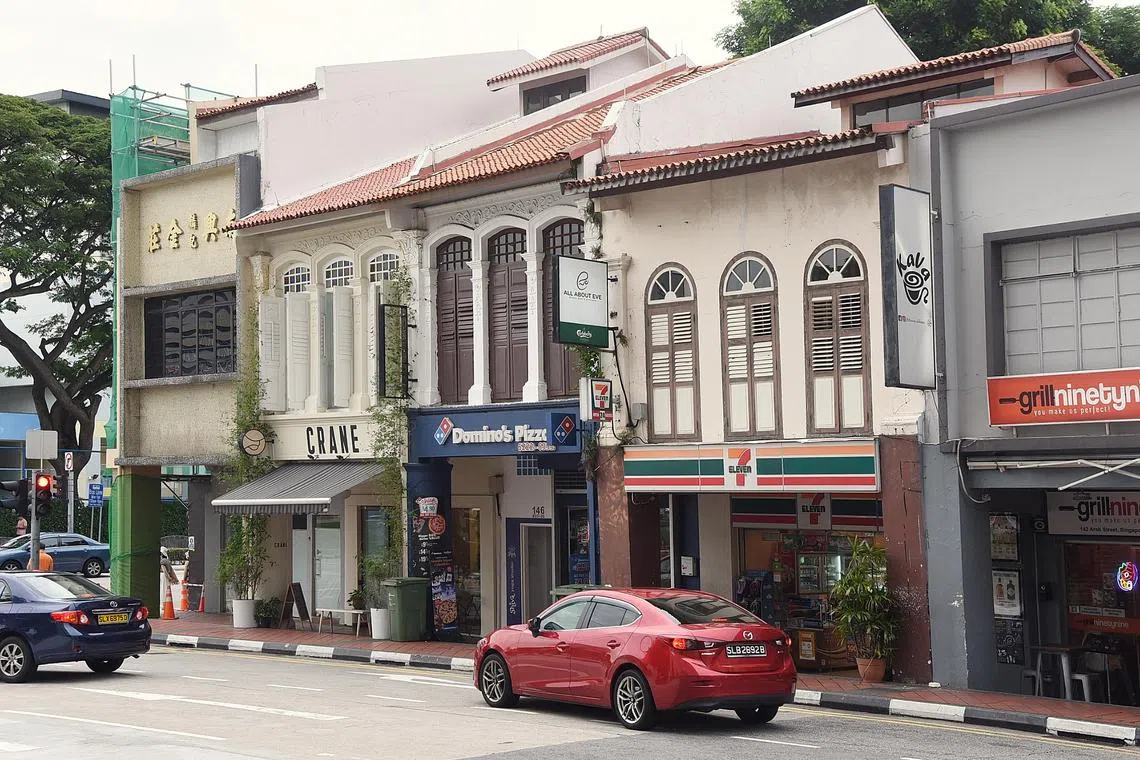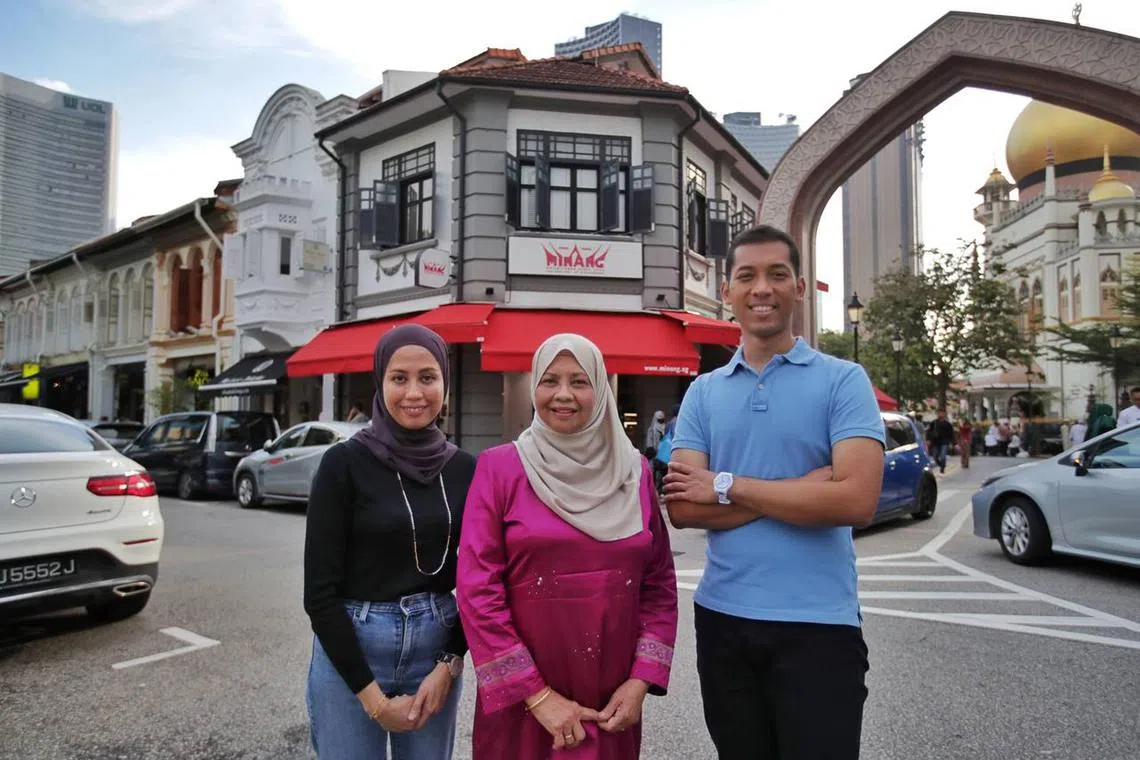Find out the history of 45 Kampong Glam heritage businesses on NHB resource portal
Sign up now: Get ST's newsletters delivered to your inbox

Kampong Glam is one of several precincts in Singapore with a sizeable concentration of heritage businesses.
PHOTO: ST FILE
Follow topic:
SINGAPORE – As one of Singapore’s earliest conservation areas, with more than 600 shophouses, Kampong Glam is one of several precincts in Singapore with a sizeable concentration of heritage businesses.
Collectively, these heritage businesses contribute to the precinct’s cultural and social identity, said Mr Alvin Tan, the National Heritage Board’s deputy chief executive for policy and community.
The stories of 45 of these businesses are now available on the National Heritage Board’s (NHB) heritage resource portal Roots.gov.sg
These stories were compiled with the help of 47 volunteers, whom NHB recruited through an open call in February 2022. Mr Tan said that they were selected from a pool of 147 people who responded to the call.
Among them was Mr Fuad Johari, 34, who has familial ties to the area. His father’s family lived within the compound of Istana Kampong Gelam, which has been converted into the Malay Heritage Centre, while his mother’s family lived in Bussorah Street.
“I’ve always felt that ‘hole’ in me, in wanting to know what the lives of the people were like in this neighbourhood and what kinds of businesses they had,” said Mr Fuad, who added that he signed up instantly upon seeing NHB’s call for volunteers on Facebook.
After undergoing training on interview skills, the history of Kampong Glam as well as on cultural sensitivity, the volunteers were split into small groups and each had to document the history of two to three heritage businesses.
Among the businesses that Mr Fuad visited for the project was Rumah Makan Minang, an eatery established in 1954. There, he found out that Madam Zulbaidah Marlian, 63, a second-generation co-owner of the eatery, had made the haj pilgrimage with his grandmother in 1976.

(From left) Rumah Makan Minang co-owners Nur Syahidah and Zulbaidah Marlian, and volunteer Fuad Johari.
ST PHOTO: GIN TAY
Mr Fuad, a civil servant, said the tenacity of the people running the businesses that he had visited for the project stood out to him, exemplified through Rumah Makan Minang’s sale of ready-to-eat meals at the height of the Covid-19 pandemic, when dining at the eatery was not allowed.
Another volunteer, Mr Ng Wee Liang, said he was struck by the common goal that all the area’s business owners had for the precinct – to preserve its cultural identity – despite being from different backgrounds and ethnicities.
The 23-year-old real estate undergraduate said the business owners he interviewed were all passionate to share their stories, and the history of the precinct.
Mr Ibrahim Tahir, owner of Wardah Books – another of the 45 businesses documented – said that the process of the interview, and looking back on his shop’s and Kampong Glam’s history through the exercise, helped to “smoothen out the everyday ups and downs of commerce to know that there may be days when business is not so good, but I’m here for the long run”.

Minister of State for National Development Muhammad Faishal Ibrahim (left) with Kampong Glam heritage business owner Ibrahim Tahir.
ST PHOTO: GIN TAY
“I’m here because I’m standing on the shoulders of giants,” he added, referring to bookshops in the area 150 years ago. He said that as a business owner within the heritage precinct, he feels a responsibility for the culture and heritage of the area, and is always ready to talk to anyone who asks about it.
Mr Tan said the project has helped NHB to involve members of the public in documenting history, as well as deepen the board’s knowledge on precinct-specific heritage.
Challenges that were shared by the heritage businesses, such as rising manpower and rental costs, as well as competition from e-commerce outlets, will be shared with government agencies so that they can better support these businesses, he said.
Mr Tan added that in 2023 and 2024, the board intends to implement similar projects for Chinatown and Little India, and that it will make public calls for volunteers to participate in these projects.
A digital map of the 45 documented Kampong Glam heritage businesses is available at


